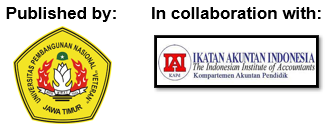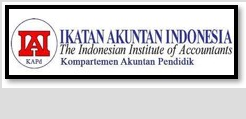Strengthening Indonesia’s Tax System: A Policy-Oriented Framework Based on ASEAN and OECD Case Studies
DOI:
https://doi.org/10.33005/jasf.v8i1.553Keywords:
Benchmarking, tax administration, tax compliance, taxpayer trustAbstract
This study investigates Indonesia’s low tax-to-GDP ratio recorded at 12.1% in 2022, far below the Asia-Pacific average of 19.3% and the OECD average of 34.0%. It aims to benchmark Indonesia’s tax compliance performance against selected ASEAN (Malaysia, Singapore, Thailand) and OECD (Denmark, Japan, Netherlands) countries to identify gaps and provide evidence-based policy recommendations. The study applies a benchmarking approach, selecting comparator countries based on similarities in economic structure and tax administration for the ASEAN group, and high-performance compliance standards for the OECD group. It is grounded in the Slippery Slope Framework and Economic Deterrence Theory to assess how trust and deterrence influence taxpayer behavior. The analysis reveals that OECD countries have leveraged digital transformation such as AI-driven audits, real-time monitoring, and integrated taxpayer services to improve compliance. In contrast, Indonesia faces persistent administrative inefficiencies, limited digitalization, and low taxpayer trust, which hamper its revenue mobilization efforts. This study offers a novel comparative perspective by integrating behavioral tax theories with policy benchmarking across diverse governance systems. It contributes actionable insights for improving Indonesia’s tax compliance through digital innovation, structured incentives, and enhanced transparency.
Downloads
References
Abubakar, J. E., Yusuf, S. O., Ocran, G., Owusu, P., Yusuf, P. O., & Paul-Adeleye, A. H. (2024). Exploring the impact of AI-driven and blockchain-enabled tax filing systems on smes in the era of technological innovation: A review of benefits, challenges, and adoption barriers. World Journal of Advanced Research and Reviews, 23(3), 1867–1878. https://doi.org/10.30574/wjarr.2024.23.3.2754
Adem, M., Desta, T., & Girma, B. (2024). Determinants of Tax Compliance Behavior: A Case Study in Ethiopia. Sage Open, 14(4), 21582440241292869. https://doi.org/10.1177/21582440241292869
Alm, J. (2019). CAN INDONESIA REFORM ITS TAX SYSTEM? PROBLEMS AND OPTIONS.
Alm, J., McClelland, G. H., & Schulze, W. D. (1992). Why do people pay taxes? Journal of Public Economics, 48(1), 21–38. Scopus. https://doi.org/10.1016/0047-2727(92)90040-M
Alm, J., & Torgler, B. (2011). Do Ethics Matter? Tax Compliance and Morality. Journal of Business Ethics, 101(4), 635–651. https://doi.org/10.1007/s10551-011-0761-9
Alstadsæter, A., Johannesen, N., & Zucman, G. (2019). Tax Evasion and Inequality. American Economic Review, 109(6), 2073–2103. https://doi.org/10.1257/aer.20172043
Andreoni, J., Erard, B., & Feinstein, J. (1998). Http://www.jstor.org Tax Compliance. Journal of Economic Literature, 36(2,), 818–860.
Anggraeni, D. P., & Hastuti, S. (2020). Does Managerial Ownership Moderate the Relationship between Corporate Social Responsibility Disclosure and Tax Aggressiveness?: (Evidence from Mining Companies in Indonesia). Journal of Accounting and Strategic Finance, 3(2), 229–242. https://doi.org/10.33005/jasf.v3i2.137
Appiah, T., Domeher, D., & Agana, J. A. (2024). Tax Knowledge, Trust in Government, and Voluntary Tax Compliance: Insights From an Emerging Economy. Sage Open, 14(2), 21582440241234757. https://doi.org/10.1177/21582440241234757
Arnold. (2012). Improving the Tax System in Indonesia (OECD Economics Department Working Papers No. 998; OECD Economics Department Working Papers, Vol. 998). https://doi.org/10.1787/5k912j3r2qmr-en
Asian Development Bank. (2025). A Comparative Analysis of Tax Administration in Asia and the Pacific—Eight Edition (0 ed.). Asian Development Bank. https://doi.org/10.22617/TCS240621-2
Aslett, J. (2024). Understanding Artificial Intelligence in Tax and Customs Administration. Technical Notes and Manuals, 2024(006), 1. https://doi.org/10.5089/9798400290435.005
Azmi, A. C., & Bee, N. L. (2010). The Acceptance of the e-Filing System by Malaysian Taxpayers: A Simplified Model. 8(1).
Basri, M. C., Felix, M., Hanna, R., & Olken, B. (2019). Tax Administration vs. Tax Rates: Evidence from Corporate Taxation in Indonesia (No. w26150; p. w26150). National Bureau of Economic Research. https://doi.org/10.3386/w26150
Bassey, E., Mulligan, E., & Ojo, A. (2022). A conceptual framework for digital tax administration—A systematic review. Government Information Quarterly, 39(4), 101754. https://doi.org/10.1016/j.giq.2022.101754
Batrancea, L., Nichita, A., Olsen, J., Kogler, C., Kirchler, E., Hoelzl, E., Weiss, A., Torgler, B., Fooken, J., Fuller, J., Schaffner, M., Banuri, S., Hassanein, M., Alarcón-García, G., Aldemir, C., Apostol, O., Bank Weinberg, D., Batrancea, I., Belianin, A., … Zukauskas, S. (2019). Trust and power as determinants of tax compliance across 44 nations. Journal of Economic Psychology, 74, 102191. https://doi.org/10.1016/j.joep.2019.102191
Belahouaoui, R., & Attak, E. H. (2024). Digital taxation, artificial intelligence and Tax Administration 3.0: Improving tax compliance behavior – a systematic literature review using textometry (2016–2023). Accounting Research Journal, 37(2), 172–191. https://doi.org/10.1108/ARJ-12-2023-0372
Bird, R. M., Casanegra de Jantscher, M., & Bird, R. M. (1992). Improving Tax Administration in Developing Countries. International Monetary Fund. https://doi.org/10.5089/9781557753175.071
Bobek, D. D., Roberts, R. W., & Sweeney, J. T. (2007a). The Social Norms of Tax Compliance: Evidence from Australia, Singapore, and the United States. Journal of Business Ethics, 74(1), 49–64. https://doi.org/10.1007/s10551-006-9219-x
Bobek, D. D., Roberts, R. W., & Sweeney, J. T. (2007b). The Social Norms of Tax Compliance: Evidence from Australia, Singapore, and the United States. Journal of Business Ethics, 74(1), 49–64. https://doi.org/10.1007/s10551-006-9219-x
Chooi, A. (2024). Mobilizing Revenue Digital Transformation of Revenue Administration in Singapore. Asian Development Bank, 56.
Cotton, M., MCotton@imf.org, Dark, G., & GDark@imf.org. (2017). Use of Technology in Tax Administrations 3: Implementing a Commercial-Off-The-Shelf (COTS) Tax System. Technical Notes and Manuals, 17(03), 1. https://doi.org/10.5089/9781475583984.005
Cummings, R. G., Martinez-Vazquez, J., McKee, M., & Torgler, B. (2009). Tax morale affects tax compliance: Evidence from surveys and an artefactual field experiment. Journal of Economic Behavior and Organization, 70(3), 447–457. Scopus. https://doi.org/10.1016/j.jebo.2008.02.010
Damayanti, T. W. (2012). Changes on Indonesia Tax Culture, is there a Way ? Studies Through Theory of Planned Behavior. Research Word, 2(3), 66–67. https://doi.org/10.15373/22778179/MAR2013/22
Darmayasa, I. N., & Hardika, N. S. (2024). Core tax administration system: The power and trust dimensions of slippery slope framework tax compliance model. Cogent Business & Management, 11(1), 2337358. https://doi.org/10.1080/23311975.2024.2337358
Demirkan, S., Demirkan, I., & McKee, A. (2020). Blockchain technology in the future of business cyber security and accounting. Journal of Management Analytics, 7(2), 189–208. https://doi.org/10.1080/23270012.2020.1731721
Dom, R., Custers, A., Davenport, S., & Prichard, W. (2022). Innovations in Tax Compliance: Building Trust, Navigating Politics, and Tailoring Reform. The World Bank. https://doi.org/10.1596/978-1-4648-1755-7
European Commission. Directorate General for Economic and Financial Affairs. (2023). 2023 country report: The Netherlands. Publications Office. https://data.europa.eu/doi/10.2765/795935
Farida, A. L., & Sugesti, P. F. (2023). Determinant of Earnings Management: Financial Distress, Tax Planning, Audit Quality, and Public Accountant Firm Size. Journal of Accounting and Strategic Finance, 6(1), 1–15. https://doi.org/10.33005/jasf.v6i1.386
Feld, L. P., & Frey, B. S. (2006). Tax Compliance as the Result of a Psychological Tax Contract: The Role of Incentives and Responsive Regulation.
Fonseca Corona, F. J. (2024). Tax morale: A global scoping review from the cultural approach to economics. International Review of Economics, 71(2), 343–365. https://doi.org/10.1007/s12232-024-00446-x
Frey, B. S., & Torgler, B. (2007). Tax morale and conditional cooperation. Journal of Comparative Economics, 35(1), 136–159. https://doi.org/10.1016/j.jce.2006.10.006
Hajawiyah, A., Suryarini, T., Kiswanto, & Tarmudji, T. (2021). Analysis of a tax amnesty’s effectiveness in Indonesia. Journal of International Accounting, Auditing and Taxation, 44, 100415. https://doi.org/10.1016/j.intaccaudtax.2021.100415
Hallsworth, M., List, J. A., Metcalfe, R. D., & Vlaev, I. (2017). The behavioralist as tax collector: Using natural field experiments to enhance tax compliance. Journal of Public Economics, 148, 14–31. Scopus. https://doi.org/10.1016/j.jpubeco.2017.02.003
Horodnic, I. A. (2018). Tax morale and institutional theory: A systematic review. International Journal of Sociology and Social Policy, 38(9/10), 868–886. https://doi.org/10.1108/IJSSP-03-2018-0039
Hoshiai, Y. (2024). Does the electronic filing system (e-tax) reduce tax evasion? Evidence from Japanese corporations. Graduate School of Public Policy, The University of Tokyo.
Huiskers-Stoop, E., & Gribnau, H. (2019). COOPERATIVE COMPLIANCE AND THE DUTCH HORIZONTAL MONITORING MODEL. 5.
IMF. (2024). 2024 ARTICLE IV CONSULTATION—PRESS RELEASE; STAFF REPORT; AND STATEMENT BY THE EXECUTIVE DIRECTOR FOR INDONESIA (IMF Country Report No. 24/270). International Monetary Fund.
Inasius, F., Darijanto, G., Gani, E., & Soepriyanto, G. (2020). Tax Compliance After the Implementation of Tax Amnesty in Indonesia. Sage Open, 10(4), 2158244020968793. https://doi.org/10.1177/2158244020968793
Iqbal, M. M., Ali, M., Hina, U., & Shaikh, Dr. T. A. (2025). The Future of Smart Tax Systems: Integrating Artificial Intelligence, Blockchain, and Autonomous Compliance Technologies for Transparent and Efficient Tax Administration. Journal of Social Sciences and Economics, 4(1), 100–109. https://doi.org/10.61363/hhnkcz03
Jaramillo, L., Wingender, P., & Gaspar, V. (2016). Tax Capacity and Growth. IMF Working Papers, 2016(234), 1. https://doi.org/10.5089/9781475558173.001
Kirchler, E., Hoelzl, E., & Wahl, I. (2008). Enforced versus voluntary tax compliance: The “slippery slope” framework. Journal of Economic Psychology, 29(2), 210–225. https://doi.org/10.1016/j.joep.2007.05.004
Kogler, C., Mittone, L., & Kirchler, E. (2016). Delayed feedback on tax audits affects compliance and fairness perceptions. Journal of Economic Behavior and Organization, 124, 81–87. Scopus. https://doi.org/10.1016/j.jebo.2015.10.014
Kurnia Rahayu, S., & Kusdianto, A. (2023). Challenges of Digital Tax Administration Transformation in Indonesia. In V. Bobek & T. Horvat (Eds.), Business, Management and Economics (Vol. 13). IntechOpen. https://doi.org/10.5772/intechopen.111458
Latif, I. N., Efrina, L., & Mauliyah, N. I. (2023). The Role of Corporate Social Responsibility Decoupling on Corporate Tax Avoidance. Journal of Accounting and Strategic Finance, 6(1), 35–50. https://doi.org/10.33005/jasf.v6i1.388
Londoño-Vélez, J., & Ávila-Mahecha, J. (2021). Enforcing Wealth Taxes in the Developing World: Quasi-Experimental Evidence from Colombia. American Economic Review: Insights, 3(2), 131–148. https://doi.org/10.1257/aeri.20200319
Luttmer, E. F. P., & Singhal, M. (2014). Tax Morale. Journal of Economic Perspectives, 28(4), 149–168. https://doi.org/10.1257/jep.28.4.149
Mapuasari, S. A., Wibowo, Y. S., & Cakranegara, P. A. (2023). Tax Incentive-Based Economic Policy, Modern Tax Administration System, and Taxpayer Compliance of Micro, Small, and Medium Enterprises. Journal of Accounting and Strategic Finance, 6(1), 51–70. https://doi.org/10.33005/jasf.v6i1.391
McKerchar, M. A., & Evans, C. C. (2009). Sustaining Growth in Developing Economies Through Improved Taxpayer Compliance: Challenges for Policy Makers and Revenue Authorities. SSRN Electronic Journal. https://doi.org/10.2139/ssrn.1415164
Nasution, M. K., Santi, F., Husaini, H., Fadli, F., & Pirzada, K. (2020). Determinants of tax compliance: A study on individual taxpayers in Indonesia. Entrepreneurship and Sustainability Issues, 8(2), 1401–1418. https://doi.org/10.9770/jesi.2020.8.2(82)
Nose, M. (2023). Exploring the Adoption of Selected Digital Technologies in Tax Administration. IMF Notes, 2023(008), 1. https://doi.org/10.5089/9798400258183.068
Nurferyanto, D., & Takahashi, Y. (2024). Combating tax crimes in Indonesia: Tackling the issue head-on. Humanities and Social Sciences Communications, 11(1), 1556. https://doi.org/10.1057/s41599-024-04075-1
OECD. (2004). Compliance Risk Management: Managing and Improving Tax Compliance.
OECD. (2017). Technology Tools to Tackle Tax Evasion and Tax Fraud. OECD Publishing.
OECD. (2019). Introducing a Commercial Off-The-Shelf Software Solution. OECD Publishing. https://doi.org/10.1787/c330fe12-en
OECD. (2022). Tax Administration 2022: Comparative Information on OECD and other Advanced and Emerging Economies. OECD. https://doi.org/10.1787/1e797131-en
OECD. (2023a). Revenue Statistics in Asia and the Pacific 2023 ─ Indonesia. OECD. https://www.oecd.org/tax/tax-policy/revenue-statistics-asia-and-pacific-indonesia.pdf
OECD. (2023b). Revenue Statistics in Asia and the Pacific 2023: Strengthening Property Taxation in Asia. OECD. https://doi.org/10.1787/e7ea496f-en
OECD. (2023c). Tax Administration 2023: Comparative Information on OECD and other Advanced and Emerging Economies. OECD. https://doi.org/10.1787/900b6382-en
OECD. (2024a). OECD Economic Surveys: Denmark 2024. OECD. https://doi.org/10.1787/d5c6f307-en
OECD. (2024b). OECD Economic Surveys: Indonesia 2024 (Vol. 2024). OECD Publishing. https://doi.org/10.1787/de87555a-en
OECD. (2024c). Revenue Statistics in Asia and the Pacific 2024: Tax Revenue Buoyancy in Asia. OECD. https://doi.org/10.1787/e4681bfa-en
OECD. (2024d). Tax Administration 2024: Comparative Information on OECD and other Advanced and Emerging Economies. OECD. https://doi.org/10.1787/2d5fba9c-en
OECD. (2025). OECD Investment Tax Incentives Database 2024 update: Corporate income tax incentives in emerging and developing economies (79th ed., OECD Business and Finance Policy Papers) [OECD Business and Finance Policy Papers]. https://doi.org/10.1787/b0de19dc-en
Phua, S. (2015). Convergence in global tax compliance. Singapore Journal of Legal Studies, 77–104.
Reyes-Tagle, G., Dimitropoulou, C., & Rodríguez Peña, C. C. (2023). Digitalization of Tax Administration in Latin America and the Caribbean: Best-Practice Framework for Improving E-Services to Taxpayers. Inter-American Development Bank. https://doi.org/10.18235/0005260
Richardson, G. (2006). Determinants of tax evasion: A cross-country investigation. Journal of International Accounting, Auditing and Taxation, 15(2), 150–169. Scopus. https://doi.org/10.1016/j.intaccaudtax.2006.08.005
Rukundo, S. (2020). Tax Amnesties in Africa: An Analysis of the Voluntary Disclosure Programme in Uganda. Institute of Development Studies (IDS). https://doi.org/10.19088/ICTD.2020.005
Sambuu, U., Chuluunbat, Z., & Unurkhaan, E. (2012). Implementation of integrated tax system COTS product. Proceedings of the 6th International Conference on Theory and Practice of Electronic Governance, 483–484. https://doi.org/10.1145/2463728.2463828
Slemrod, J. (2019). Tax Compliance and Enforcement. NATIONAL BUREAU OF ECONOMIC RESEARCH.
Søgaard, J. S. (2021). A blockchain-enabled platform for VAT settlement. International Journal of Accounting Information Systems, 40, 100502. https://doi.org/10.1016/j.accinf.2021.100502
Supriyati, S., & Hapsari, I. (2021). Tax Avoidance, Tax Incentives and Tax Compliance During the Covid-19 Pandemic: Individual Knowledge Perspectives. Journal of Accounting and Strategic Finance, 4(2), 222–241. https://doi.org/10.33005/jasf.v4i2.174
Tjen, C., Indriani, V., & Wicaksono, P. T. (2019). PRIOR EXPERIENCE, TRUST, IS SUCCESS MODEL: A STUDY ON THE USE OF TAX E-FILING IN INDONESIA. LPEM-FEBUI.
Torgler, B. (2006). The importance of faith: Tax morale and religiosity. Journal of Economic Behavior and Organization, 61(1), 81–109. Scopus. https://doi.org/10.1016/j.jebo.2004.10.007
Torgler, B., & Schneider, F. G. (2007). Shadow Economy, Tax Morale, Governance and Institutional Quality: A Panel Analysis. SSRN Electronic Journal. https://doi.org/10.2139/ssrn.960012
Torgler, B., & Valev, N. T. (2006). Corruption and Age. Journal of Bioeconomics, 8(2), 133–145. https://doi.org/10.1007/s10818-006-9003-0
Trifan, V. A., Szentesi, S. G., Cuc, L. D., & Pantea, M. F. (2023). Assessing Tax Compliance Behavior Among Romanian Taxpayers: An Empirical Case Study. Sage Open, 13(3), 21582440231195676. https://doi.org/10.1177/21582440231195676
Umar, M., Sial, M. H., Ali, S. A., Bari, M. W., & Ahmad, M. (2023). Trust and social network to boost tacit knowledge sharing with mediation of commitment: Does culture moderate? VINE Journal of Information and Knowledge Management Systems, 53(6), 1135–1158. Scopus. https://doi.org/10.1108/VJIKMS-01-2021-0012
Vázquez-Caro, J., & Bird, R. M. (2011a). Benchmarking Tax Administrations in Developing Countries: A Systemic Approach.
Vázquez-Caro, J., & Bird, R. M. (2011b). Benchmarking Tax Administrations in Developing Countries: A Systemic Approach. International Studies Program Working Paper 11-04.
Wardana, A. B. (2024). A Historical Overview of The Most Successful Tax Amnesty Policies in Indonesia. JKAP (Jurnal Kebijakan Dan Administrasi Publik), 28(2), 107. https://doi.org/10.22146/jkap.95135
Zakaria, M., Wan Ahmad, W. N., Che Hussin, N., Hassan, R. A., Madah Marzuki, M., Syukur, M., & Sari, E. N. (2024). Adoption of tax digitalisation among Malaysian tax practitioners. TELKOMNIKA (Telecommunication Computing Electronics and Control), 22(3), 567. https://doi.org/10.12928/telkomnika.v22i3.2595














